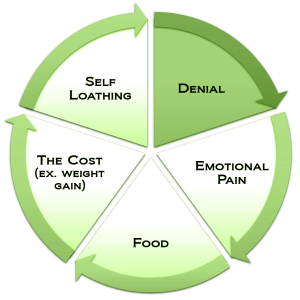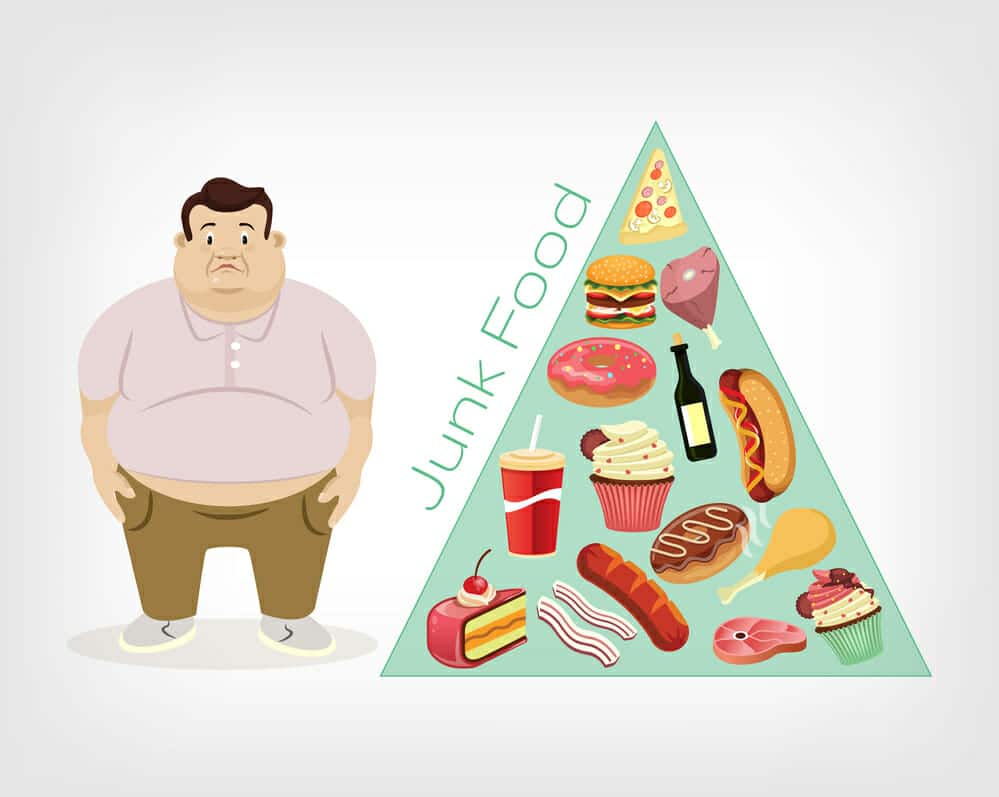With the development of each new diet craze comes a new opportunity to help about 95% or more of those who fail. The more popular the diet that appears to work for everyone else, the greater the despair for those who try it, but are unsuccessful yet again.
Radical changes in food consumption alone can rarely be maintained for a lifetime, so it is only a matter of time before most people revert back to their old ways, rewarding themselves for a temporary life of deprivation with an overabundance of food.
Unless the moderately overweight or morbidly obese person experiences a radical shift in mind and heart, it is very unlikely, not impossible, but unlikely, that any diet will lead to permanent weight loss. Even with gastric by-pass surgery, there will be relapse and repeated failure unless the heart changes along with the anatomy alterations.
The comparison between overeaters and alcoholics and addicts is helpful in understanding the fallacy of expecting a new diet to produce lasting results.
The overeater and the addict have quite a bit in common:
- Both use a substance to alter mood and medicate emotional pain.
- Both develop a high tolerance, requiring more and more of the substance, in a futile attempt to experience previously attained or imagined levels of temporary comfort and relief.
- Both eventually experience despair rather than relief or comfort from the substance of choice.
- Both continue destructive behavior in the midst of adverse consequences.
- Both experience withdrawal, craving relief throughout attempts to go without the substance of choice.
- Both will die early if there is not a change in behavior.
- Both have family members and friends who either perpetuate the problem, enable the problem, or sabotage attempts to change.
It is remarkable to most overeaters how their behavior, reactions, and emotional states mirror that of a drug addict or alcoholic.
Given the resemblance of both problems, it is not surprising that most overeaters fail at their attempts to change. They read books and implement plans to alter the way they consume their substance of choice in an effort to fix the problem. Can you imagine suggesting to an alcoholic a book on addiction that went to great lengths to tell an alcoholic how to drink differently? Who would recommend to an alcoholic a book that gives recipes of mixed drinks that contained less alcohol or a list of preferred alcoholic beers and wines?
Yet this is the home remedy that overeaters choose most frequently. Often times, therapists recommend this method and frustratingly monitor the temporary success, then the impending failure if the overeater stays in counseling that long. An overeater in counseling presents a unique opportunity to help in ways that no other experience has.
The wise therapist can confront the roadblocks to recovery and encourage the work required to get to the deeper issue: ‘Why do you eat so much?’ It is sometimes difficult and uncomfortable to bring up the issue but it is enabling to ignore it.
I remember sitting face to face with a woman who weighed approximately 350 pounds and came to me to discuss her cocaine addicted husband. It would have been easy for me to go through the steps of intervention that would result in treatment for her spouse, but I had to confront the visible problem in front of me. She was incensed that I would even want to discuss her weight rather than focus on how to help her husband. She predictably related that her weight gain was a direct response to her husband’s addiction. When I finally met with her husband, his exact words to me were, ‘My wife got fat so I got high.’
Both husband and wife would have to do three things if each was to overcome their dependencies on destructive amounts of a substance. It is the same three things for any overeater who has come my way.
At our Living Light workshops, I have watched morbidly obese clients roll through the doors in doublewide wheelchairs with oxygen tubes in their noses after paying for two round trip tickets because they could not fit into one seat. Not everyone is in that bad of shape, but whatever the condition, I confront at least one of three major issues keeping people fat in the midst of their most dire circumstances and consequences. After a few introductory remarks, I tell them they all have wasted their time and money coming to the workshop unless they break through their desire to isolate, practice connecting, and go home and connect with others who have the same problem.
Click here to find out more about this Total Solution-Spiritual, Emotional, Physical-for Permanent Weight LossÂ
Or better yet, get a jump start at our Living Light weekend intensive. Get all the details HERE or call (800) NEW-LIFE (639-5433).
Addicted To Food? #HealthStatus
Radical changes in food consumption alone can rarely be maintained for a lifetime, so it is only a matter of time before most people revert back to their old ways, rewarding themselves for a temporary life of deprivation with an overabundance of food.








Reply